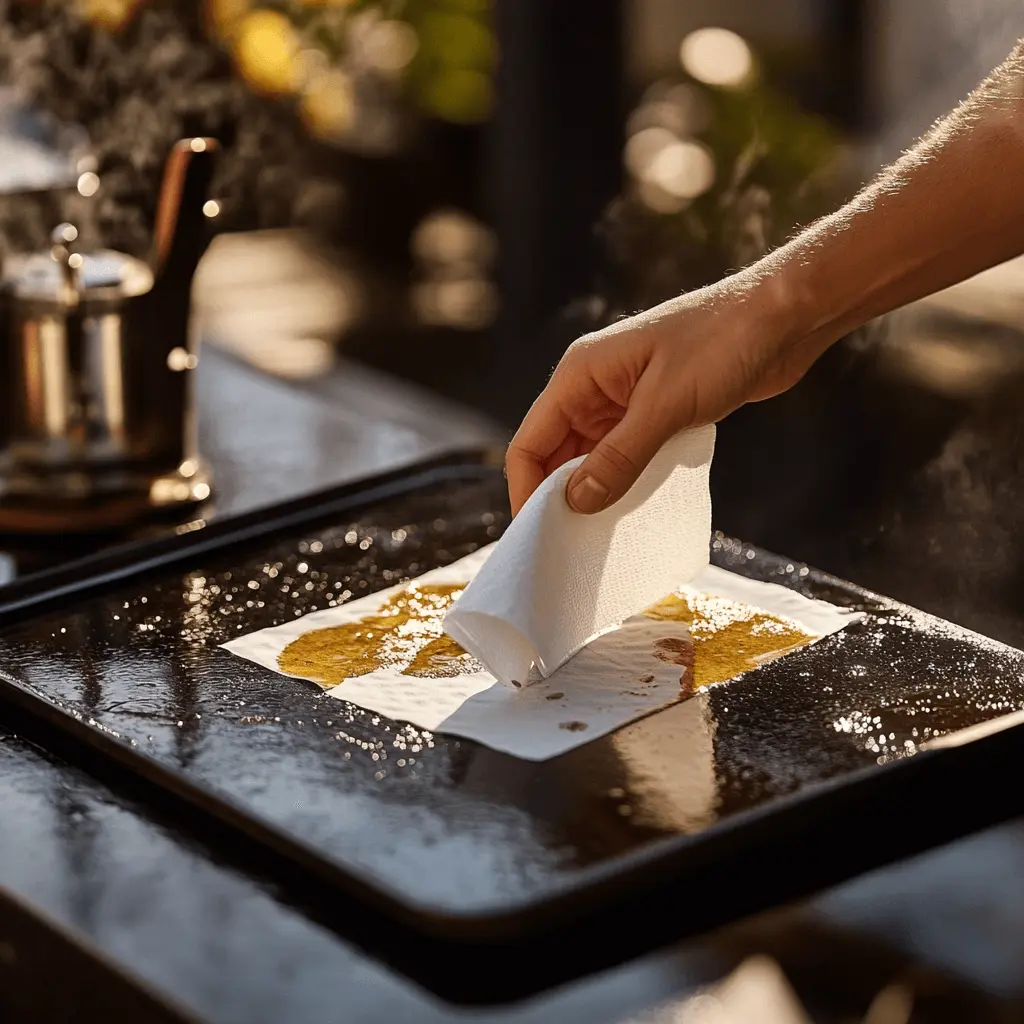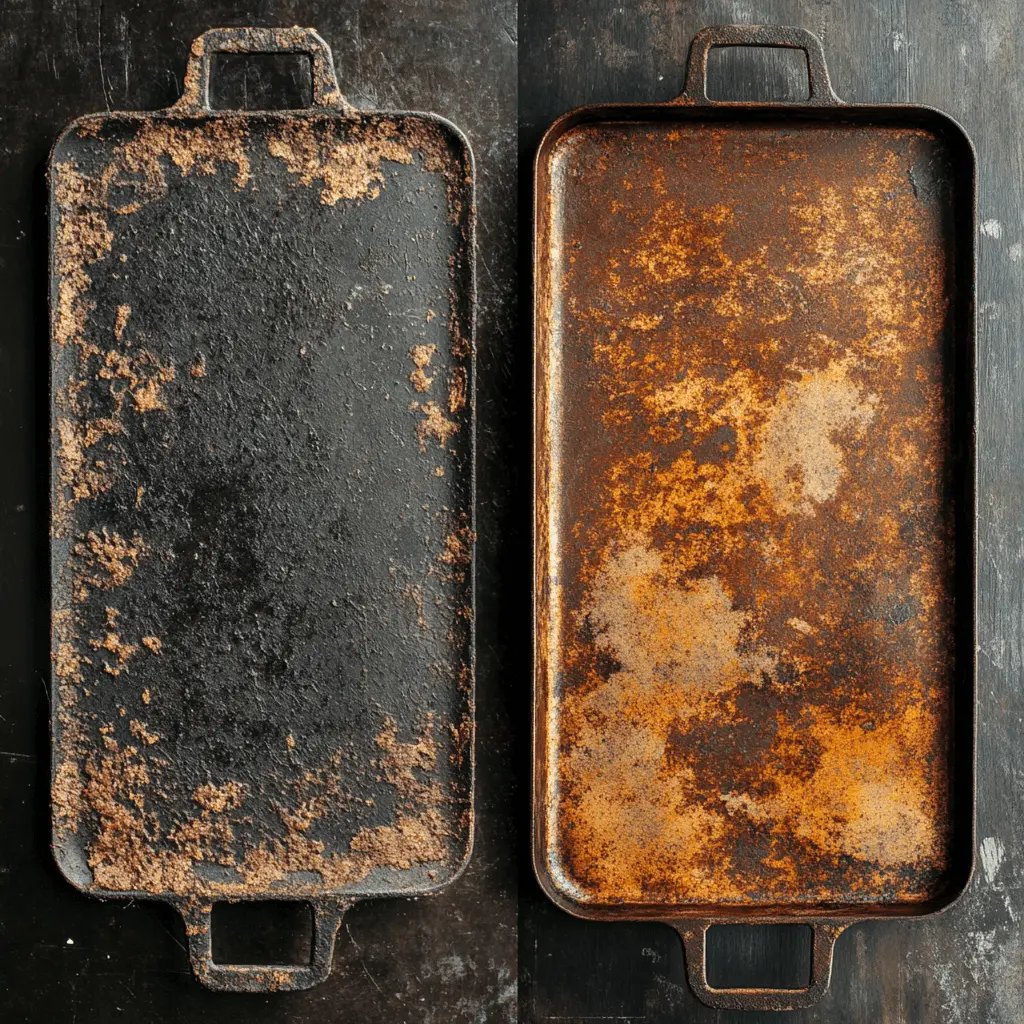The Blackstone griddle is a versatile cooking tool that has become a favorite among professional chefs and home cooks alike. Whether you’re flipping pancakes, searing steaks, or stir-frying vegetables, its flat-top design makes cooking a breeze. A common question among users is, “Do you put oil on Blackstone every time you cook?” The answer isn’t always straightforward, as it depends on what you’re cooking and the condition of your griddle.

Regular oiling is a vital part of griddle maintenance. According to griddle maintenance tips for Blackstone cooking, oiling protects the surface from rust and preserves its non-stick properties. Additionally, knowing the right oils to use is crucial for optimal performance. For more insights into mistakes to avoid when using your griddle, check out common errors on a Blackstone griddle, which will help you prolong the life of your cooking surface.
Why Is Oiling Important? Do You Put Oil on Blackstone Every Time You Cook?
When maintaining a Blackstone griddle, many wonder, “Do you put oil on Blackstone every time you cook?” Regular oiling is essential for several reasons:
- Rust Prevention: A thin layer of oil protects the griddle from moisture, reducing the risk of rust.
- Maintains Non-Stick Properties: Oiling reinforces the seasoning layer, making it easier to cook delicate foods without sticking.
- Even Heat Distribution: Proper oiling helps achieve consistent cooking results by preventing hot spots.
- Longevity: A well-oiled griddle lasts longer and requires fewer repairs or reseasoning.
Neglecting to oil your Blackstone griddle can lead to several issues:
- Food sticking to the surface.
- Uneven cooking.
- Increased risk of rust, especially in humid environments.
If you’re still considering the benefits of owning a griddle, explore whether a Blackstone is healthier than a traditional grill. This guide provides a comparison that evaluates health and cooking performance.
The Benefits of Regular Oiling on Your Blackstone Griddle
Using oil on your griddle has more benefits than you might realize. For instance, it not only enhances the cooking experience but also helps maintain the griddle itself. Regular oiling prevents unnecessary wear and tear, ensuring your Blackstone lasts for years. By incorporating oil into your cooking routine, you can enjoy consistent results and fewer challenges when cooking delicate foods like eggs or pancakes.
Do You Need to Put Oil on Blackstone Griddle Before and After Cooking?

Oiling Before Cooking
Oiling before cooking is particularly important when preparing foods prone to sticking, such as:
- Eggs
- Pancakes
- Vegetables
Applying a thin layer of oil ensures an even surface and improves the texture of your dishes. This step is crucial, especially if you’re cooking on a recently cleaned or reseasoned griddle.
Oiling After Cooking: Protecting Your Blackstone Griddle for Longevity
Post-cooking oiling is equally important for protecting the griddle during storage. After cleaning, apply a light layer of oil while the surface is still warm. This step prevents moisture from causing rust and reinforces the non-stick layer. By following this practice, you’re ensuring the long-term durability of your griddle.
Choosing the Best Oil for Blackstone Griddle Maintenance
Not all oils are created equal. Selecting the right oil depends on your cooking style and maintenance needs:
- Canola Oil: Affordable with a high smoke point (~400°F) and neutral flavor.
- Avocado Oil: Ideal for high-heat cooking, with a smoke point of ~520°F.
- Flaxseed Oil: Best for seasoning as it creates a strong polymerized layer.
- Coconut Oil: Adds a subtle flavor and works well for medium-heat cooking.
- Butter and Animal Fats: Enhances flavor but may require supplementation with high-smoke-point oils to prevent burning.
For detailed advice on selecting the best oils, refer to what cannot be cooked on a griddle, which provides additional tips for making your cooking experience smoother.
How to Properly Oil Your Blackstone Griddle: Do You Put Oil on Blackstone Every Time You Cook?
Step-by-Step Guide
If you’re asking, “Do you put oil on Blackstone every time you cook?” here’s a step-by-step process to ensure you’re doing it right:
- Clean the Surface
Scrape off food debris with a spatula. For stubborn residue, use a small amount of water on the warm surface and wipe clean with a paper towel. - Apply Oil
Pour a tablespoon of oil onto the griddle and spread it evenly using a cloth or paper towel. - Heat the Griddle
Turn on the burners to medium-high heat and let the oil smoke slightly. This helps it bond to the surface, reinforcing the seasoning layer. - Cool and Store
Allow the griddle to cool before storing. For long-term storage, apply an extra layer of oil for added protection.
Common Problems When You Skip Oiling Your Blackstone Griddle

While oiling is generally recommended, skipping it can lead to:
- Rust forming on the griddle surface.
- Food sticking, making cleanup more difficult.
- Reduced seasoning effectiveness over time.
Avoid these pitfalls by incorporating oiling into your routine. Even for high-fat foods like bacon or burgers, a small amount of oil before cooking can optimize results.
Situations Where You Can Skip Oiling
While oiling is crucial in most cases, there are exceptions:
- Cooking High-Fat Foods: Foods like bacon or sausage release enough grease to naturally lubricate the surface.
- Well-Seasoned Griddles: A heavily seasoned griddle may handle low-fat foods without additional oil.
- Short-Term Use: If you’re cooking multiple meals within a short time, you can skip post-cooking oiling temporarily.
FAQs About Oiling Blackstone Griddles
Do You Need to Oil a Blackstone Griddle Every Time?
Yes, oiling before and after cooking is highly recommended to maintain the griddle’s non-stick properties and protect it from rust.
What Type of Oil is Best for Blackstone Griddles?
High smoke point oils such as canola or avocado oil are best for cooking, while flaxseed oil works well for seasoning.
Why Does My Blackstone Griddle Rust Even After Oiling?
Rust can occur if the oil layer is too thin or uneven, or if the griddle is exposed to moisture. Ensure proper oiling and storage to prevent this issue.
Can You Use Butter Instead of Oil?
Butter is great for flavor but should be supplemented with high-smoke-point oils to prevent burning.
How Often Should You Season Your Blackstone Griddle?
Season your griddle thoroughly when it’s new and reapply seasoning as needed, depending on usage.
Maintenance Tips for Longevity
- Clean Regularly: Always scrape off food debris and wipe the griddle clean after cooking.
- Reseason When Needed: If the seasoning layer becomes damaged, reseason the griddle by applying multiple thin layers of oil and heating each one.
- Proper Storage: Store the griddle in a dry environment and cover it to protect against dust and moisture.
Conclusion
Oiling your Blackstone griddle is a simple yet essential step to maintain its performance and longevity. Whether you’re cooking a hearty breakfast or a gourmet dinner, following these oiling practices will ensure consistent results and a hassle-free experience. By taking proper care of your griddle, you’ll enjoy delicious meals for years to come.
